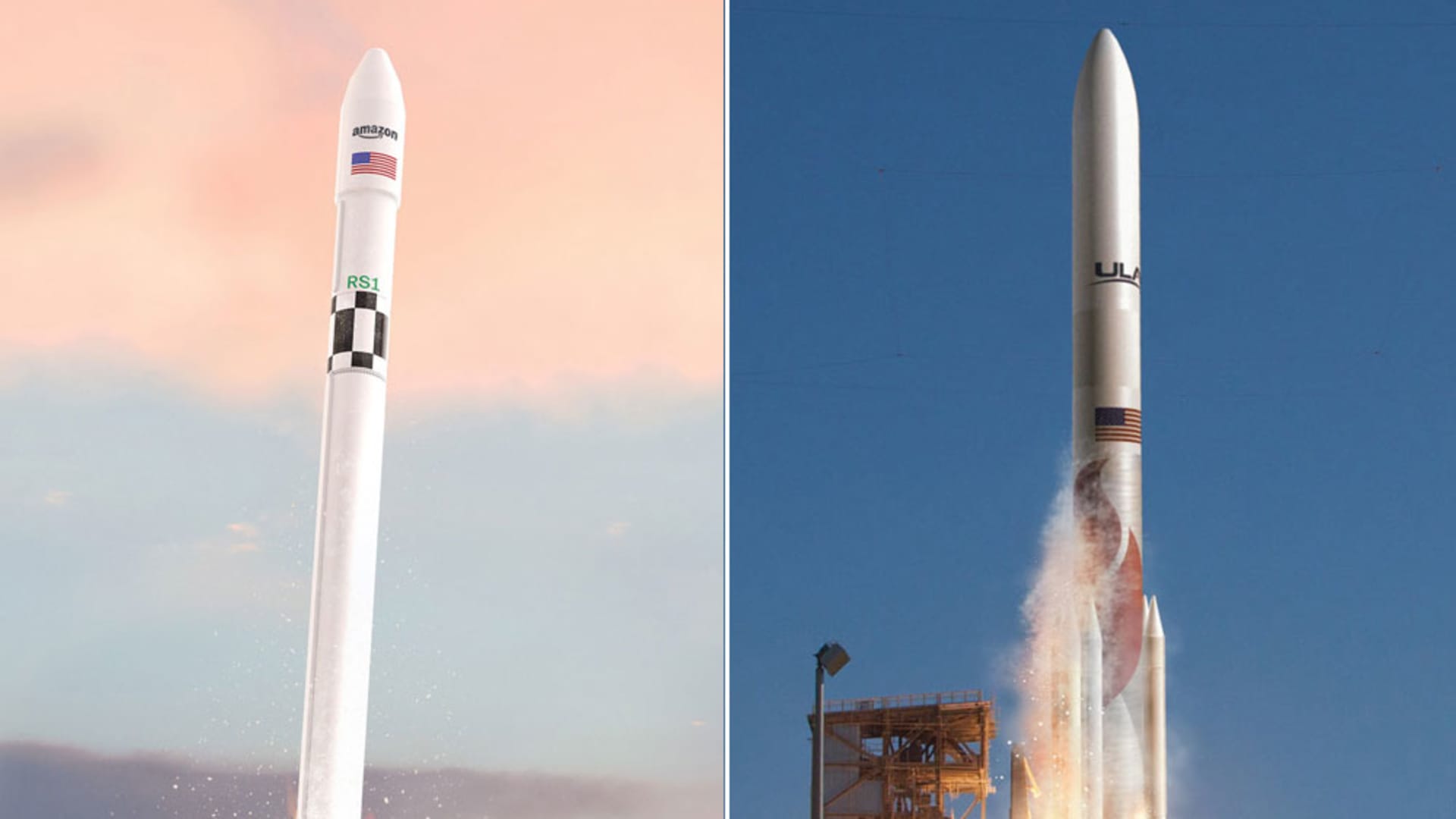Amazon is swapping rides for the first prototype satellites for its Project Kuiper internet network, the company announced Wednesday, a move that delays launching the pair of spacecraft to early next year.
The tech giant is moving its Kuipersat-1 and Kuipersat-2 from the RS1 rocket in development by ABL Space to the debut flight of the Vulcan rocket from United Launch Alliance, the joint venture of Boeing and Lockheed Martin.
A year ago Amazon announced that ABL’s RS1 would carry the prototypes to orbit in late 2022, but the rocket is still in development, with a prior debut launch yet to lift off.
Instead, the Amazon satellites will hitch a ride on the first launch of ULA’s Vulcan, which is planned for the first quarter. ULA has been waiting on two major pieces for Vulcan’s debut: a pair of BE-4 engines being built by Jeff Bezos’ Blue Origin and the Peregrine lunar lander of Astrobotic — a spacecraft previously booked on the flight.
Reuters first reported Amazon’s switch of rocket-delivery systems.
Amazon isn’t ditching ABL entirely, however, saying it plans to retain two launches with the rocket company for future missions. ABL President Dan Piemont confirmed the plans to continue working with Amazon, telling CNBC in a statement that his company finished work on a custom Project Kuiper spacecraft adapter earlier this year. He also emphasized that ABL has a backlog of missions from customers including the U.S. Space Force and Lockheed Martin.
Project Kuiper is Amazon’s plan to build a network of 3,236 satellites in low Earth orbit, to provide high-speed internet to anywhere in the world. The Federal Communications Commission in 2020 authorized Amazon’s system, which the company has said it will “invest more than $10 billion” to build.
Earlier this year, Amazon announced the biggest corporate rocket deal in the industry’s history, and has booked up to 92 launches from three different companies to deploy the satellites fast enough to meet regulatory requirements.
